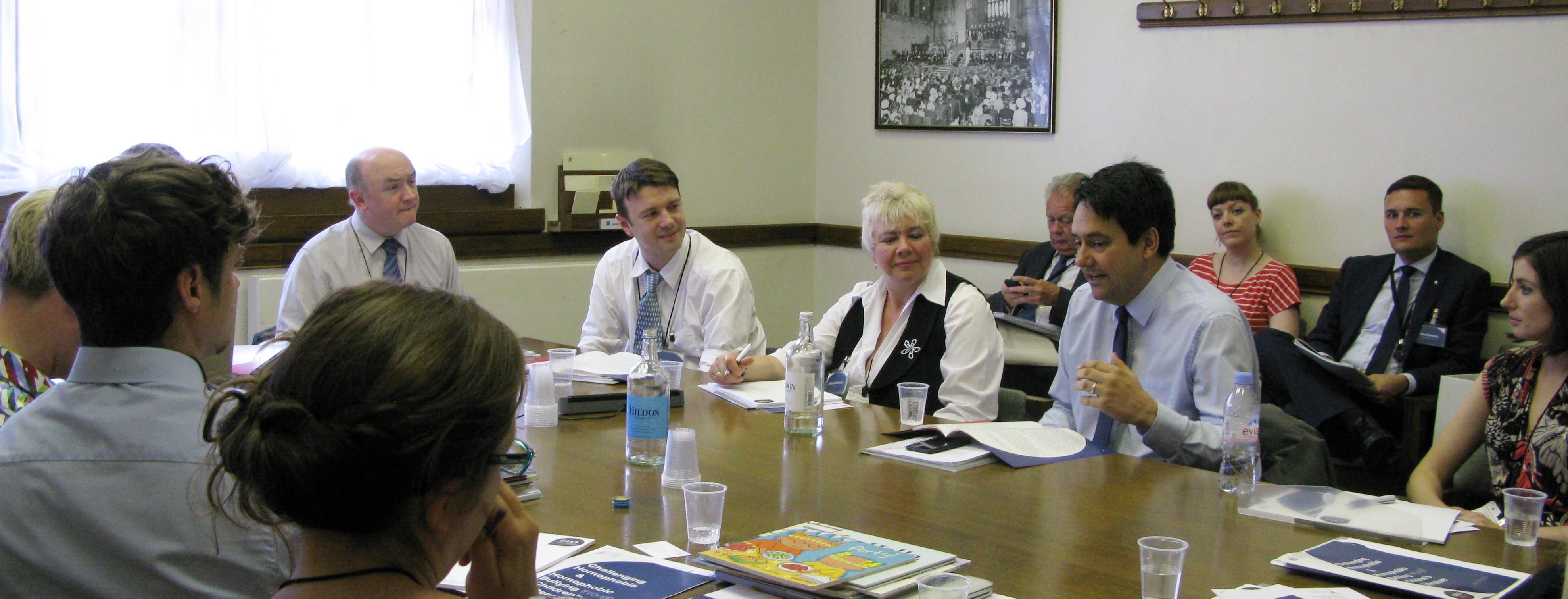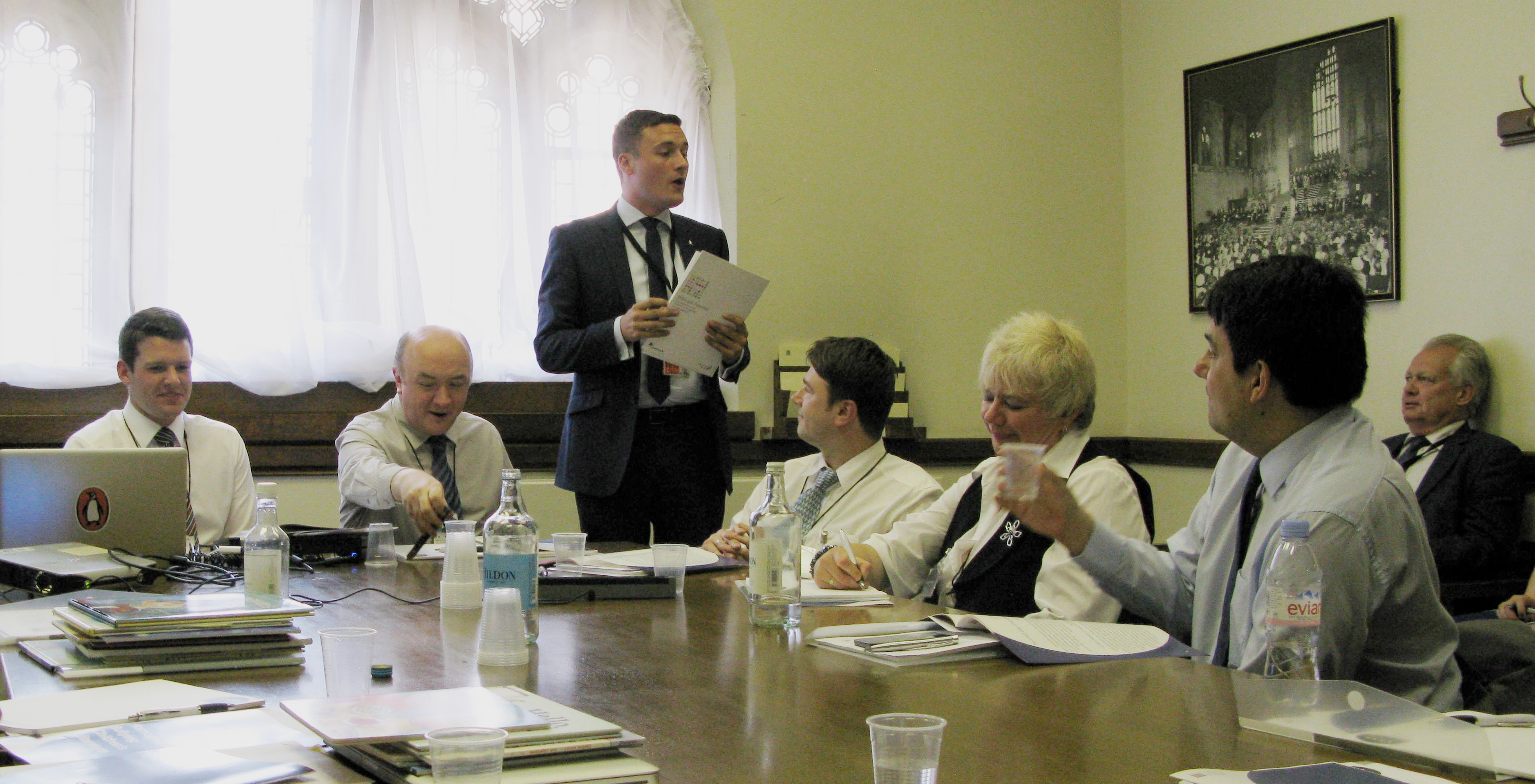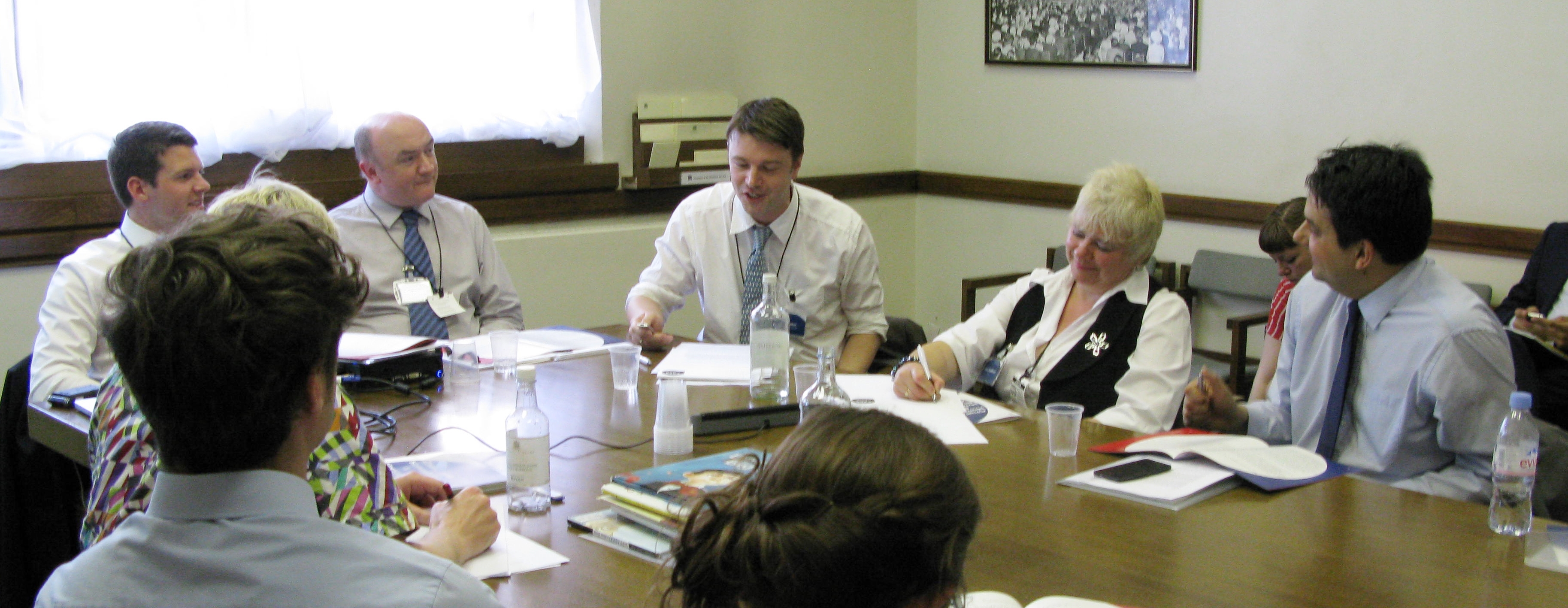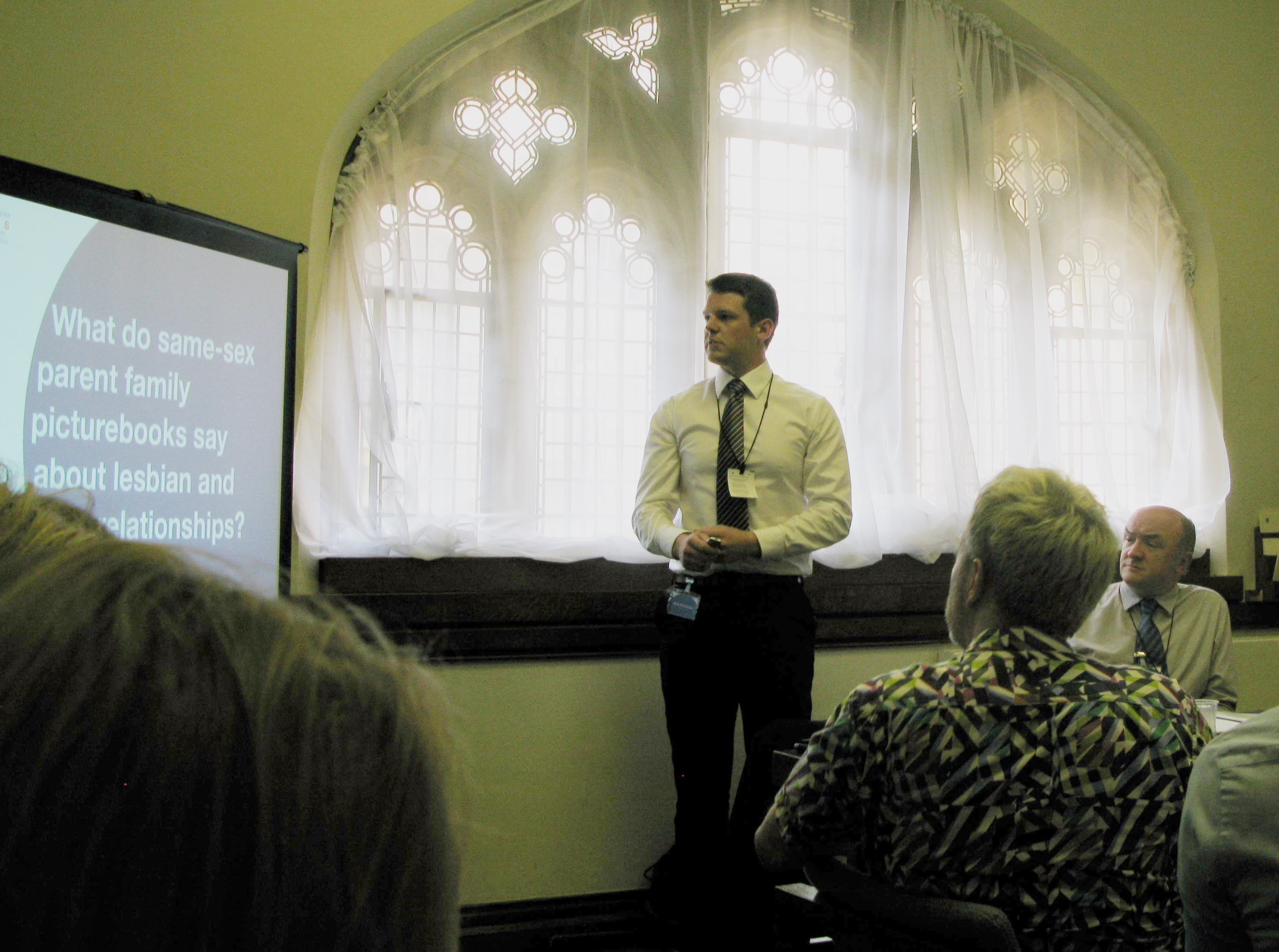On July 16th 2013 I hosted an event supported by ESRC/CASS and the Lancaster University FASS-Enterprise Centre on Challenging Homophobia and Homophobic Bullying through Children’s Literature.
The event aimed to start a conversation about the use of children’s literature as a resource for effectively challenging homophobia and homophobic bullying and included attendees ranging from MPs and charity spokespersons to prominent academics and educational practitioners to children’s publishers and literature retailers. All who attended were experienced in issues of homophobia and homophobic bullying or with issues relating to inclusive children’s literature.

The 2-hour event, which took around 6 months of organisation to bring together, included 6 presentations and a roundtable discussion, and turned out to be a success both in terms of an opportunity for knowledge exchange and networking.

The presentations were structured into 2 sessions. The first session focussed on issues of homophobia and homophobic bullying. The second session focussed on issues of using children’s literature as a means for addressing issues of inclusion.
The presentations for session 1 were as follows:
Stonewall’s head of education, Wes Streeting, gave an up-to-date account of Stonewall’s research into homophobia and homophobic bullying in schools and emphasised the need for better teacher training and for curricula to have inclusivity imbedded within them in an age-appropriate way. It was also stressed that school teachers, governors, and parents should all take an active roll in deciding what is the best route to securing an inclusive curriculum.
Ian Rivers, Professor of Human Development at Brunel University, gave a brief history of the study of homophobia and homophobic bullying in schools as well as stressing the need for anti-bullying programmes which first and foremost secure beneficial outcomes for children.
Finally, Paul Baker, Professor of English Language and Linguistics at Lancaster University, focussed on the broader social context for homophobia by looking at how gay people have been represented in The Daily Mail and how this has changed over time. Professor Baker used a corpus linguistic approach to look at the kinds of words that collocate with (i.e. generally occur close or next to) the words gay(s) and homosexual(s) and what frequent collocates might suggest about being gay. He suggested that over time gay people have become less linked with criminal, violent and promiscuous activities and that The Daily Mail now recognises concepts like gay relationships and homophobia.

The presentations for session 2 were as follows:
Beth Cox, an independent children’s literature consultant, gave a presentation on her work as part of Inclusive Minds, a collective aimed at encouraging inclusive representations in children’s literature that she helped to found. Her presentation highlighted that working with publishers will be a key part of creating more diverse and inclusive children’s literature.
I then gave a presentation on picturebooks featuring same-sex parent families. In this presentation, I showed that same-sex parent family picturebooks are a very small part of the children’s literature market and that independent authors and presses in the US predominantly publish them. I also highlighted some difference between books with lesbian mums and books with gay dads. Lesbian mums are predominantly represented linguistically as parents of the child through being named using a kinship term like mummy, whereas gay dads are often represented metaphorically (as animals, for example) and predominantly are not named in a way which suggests they are not a father.
Lastly, the independent trainer, writer, and consultant Mark Jennett gave a talk in which he suggested that children’s literature has been a crucial resource in his work which advances gender and sexualities equalities in schools.

Following these sessions, there was a brief roundtable discussion. I give a brief account of some of the outcomes of the discussion here, but a full account of the event will be provided in a report to follow shortly.
Roundtable: (LGBT) inclusive children’s literature
Prominent in the discussion was an all-round recognition of an increasing awareness and consciousness of the need to address issues of inclusion in schools but also an agreement that there is a definite gap in the UK market for (LGBT) inclusive children’s literature to fill.
Publishers present also recognised this gap and suggest that, although they do actively look to publish inclusive material, the quality, quantity and marketability of submissions from agents and authors is extremely poor.
Tackling the representation of LGBT individuals and themes as ‘an issue’ in children’s literature was also seen as undesirable by some participants in the discussion, as this may serve to further propagate the idea that it is ‘an issue’ identify as LGBT. It was felt that more ‘usualised’ representations of LGBT characters where sexuality is not a main focus of the narrative would better address the aim of providing inclusive resources.
Moreover, it was suggested that more ‘usualised’ representations of LGBT characters would broaden the market for children’s literature with LGBT themes and would also serve to encourage literature that was of a higher quality and marketability.
To view the event programme, please visit: http://www.academia.edu/4196222/Challenging_Homophobia_and_Homophobic_Bullying_through_Childrens_Literature_-_Event_Programme
